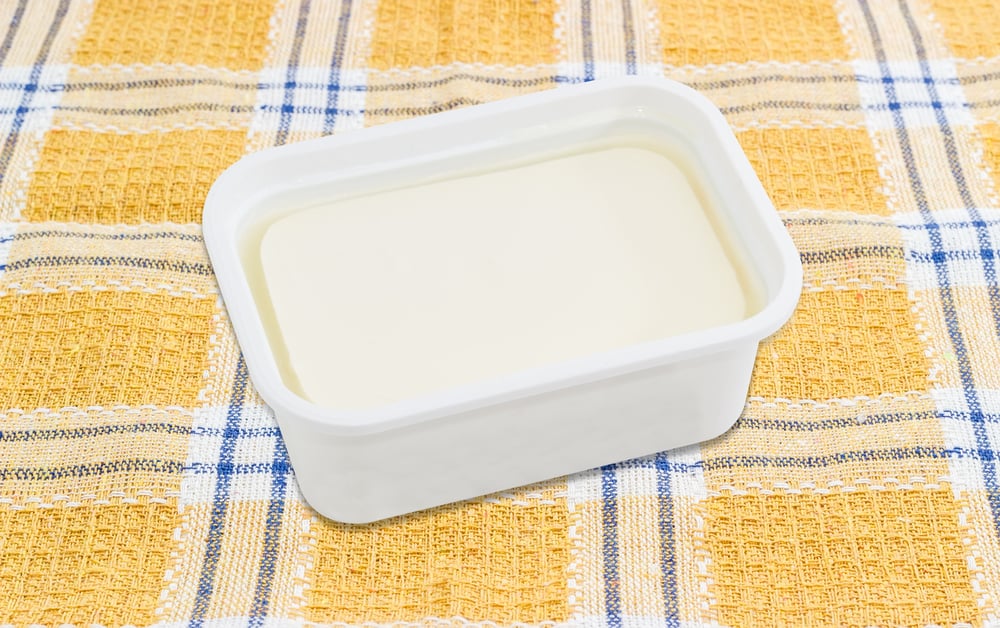If you love feta cheese, then you must have asked yourself this question- How long does feta cheese last? Like any other semi-soft cheeses, feta has a short shelf life. However, if stored properly, you can extend its shelf life beyond its packaging date for a couple of days or even weeks.
I got fixated on this question when I bought more feta cheese as much than I should. To avoid wasting any package of feta cheese, I tried to search online for some information about its shelf life. To learn more about feta cheese, its shelf life, and proper storage, keep reading below.
What Is Feta Cheese?

Feta cheese is known for its pungent aroma, soft texture, and salty, yet tangy flavors. This semi-soft cheese is traditionally produced from sheep’s milk, but now many are made from goat’s milk. There is also a variety that combines both milk, like this one.
The better feta is known as a pickled cheese where it’s cured in a salty brine and aged for about 4-6 weeks. Pickled cheese has a saltier and sharper taste. You can crumble feta over salads, soups, and pasta.
So, How Long Does Feta Cheese Last?

In general, harder cheese lasts longer than soft cheese. Some of the factors that affect the shelf life of soft cheese include the processing method, vulnerability to heat, and storage method. According to Eatbydate, feta cheese can last in the refrigerator for about a week past its packaging date if properly stored.
If packaged in brine, feta can last in the refrigerator and freezer for about three months. Although you can freeze feta for several months, it seems to lose some of its taste and texture once thawed.
Frozen feta tends to be grainy so you can’t use it in uncooked dishes, like salads because its will make its degraded quality more noticeable. Instead, use frozen feta in cooked dishes like sauces and soups.
How To Determine That Your Feta Cheese Has Gone Bad?

Just like any other cheese, feta cheese can get spoiled. If placed in the refrigerator, it can become hard, dry, and gritty. Once this happens, you should not consume it because the texture and flavor will already be slightly unpleasant.
One of the clear manifestations of spoilage is molds. Although you can scrape off the mold area on hard cheeses, this shouldn’t be done with soft cheese as the mold spores can simply proliferate over the entire piece of cheese. If you find that the smell of your feta has become sour or nasty in any way, you should discard it away.
Storing Feta Cheese

If you bought a large block of feta cheese, you can store it in an airtight plastic container. While in the plastic container, you can cover the feta cheese with three different preservatives: whole milk, olive oil, and brine solution.
1. Whole Milk
If you want the feta cheese to be less salty, you can cover it with whole milk in the plastic container. But before you do it, slice it into small pieces similar to what you see in supermarkets. Watch how to store feta with whole milk in this video here.
[su_youtube url=”https://youtu.be/7ipHp9D6Iqg”]
2. Extra Virgin Olive Oil
The traditional way of storing feta is to soak them with extra virgin olive oil. The olive oil will serve as a preservative to keep the feta longer. As the feta stays on the olive oil, it changes character from creamy to something sharp and pungent.
When it’s time to use the feta, never throw the olive oil because you can use it as a dip for your bread. The taste is really amazing.
3. Brine Solution
The most common way of storing feta is to cover it with a brine solution. Just cut another piece of the feta cheese and place it in a plastic container. Pour some of the brine that is sold together with the feta cheese. The salt in the brine will act as a preservative to the cheese.
If you bought a feta cheese that is not stored in brine, you can actually make your own. Just mix one gallon of water with one pound of salt.
Final Thought
How long does feta cheese last? If stored in the refrigerator, feta can last up to one week. Feta cheese that is packaged in brine can last up to three months in the refrigerator and freezer. You can store feta cheese in an airtight plastic container and covered in any of these preservatives: whole milk, extra virgin olive oil, and brine solution.
Have you tried eating or storing feta cheese already? Let us know your suggestions and ideas in the comments section below. If you like this article, feel free to share it with your friends and family by all means.



